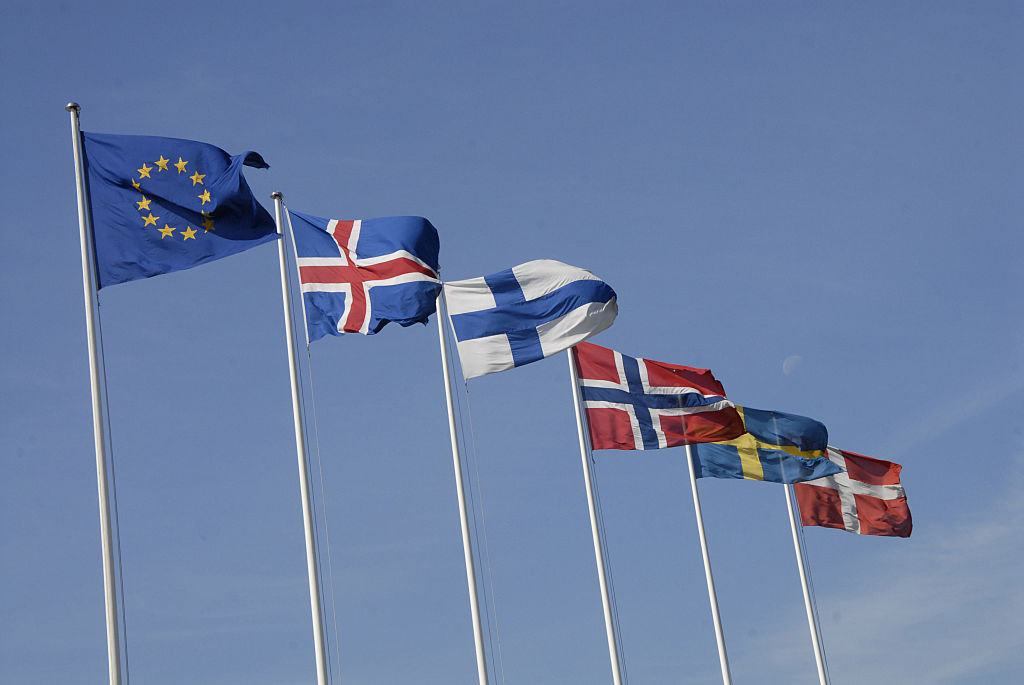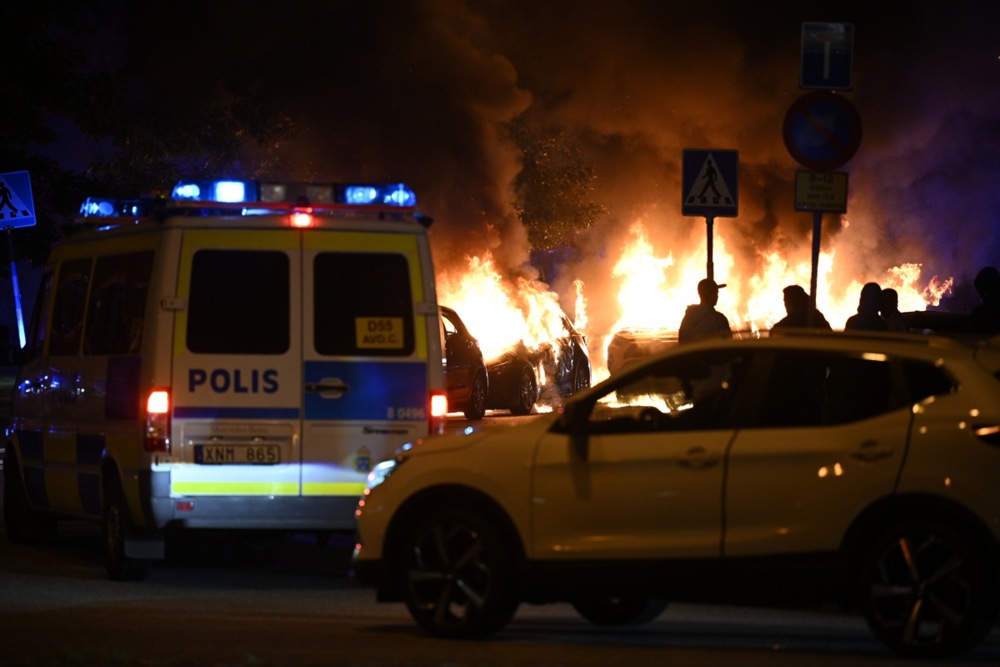Sweden Democrats MEP Charlie Weimers has invited the Iranian artist Sadaf Ahmadi to the European Parliament after the Swedish city of Borås cancelled her exhibition, deeming it anti-Islam.
While Ahmadi received initial approval from city authorities and Borås had scheduled the exhibition for September this year, officials later reversed their decision. That was apparently inspired by fear of violence after a series of Quran burnings sparked fury among the Islamic element of the Swedish population.
Based on a “risk assessment”, the head of culture in Borås Ida Burén said at the time of the cancellation that “the work has explosive potential”. The city claimed it wanted to secure a different location for the exhibits but was unable to find an alternative.
Burén said she believed that the artworks could spur unexpected incidents, potentially leading to unsafe situations and that the city was unable to handle such in open spaces.
Then, as outrage in Sweden over the cancellation erupted with protestors saying it was a de facto ban on criticism of Islam, Borås performed another about-turn and decided on September 8 to once again allow the artist to show her work in the city.
In response to the original cancellation, Weimers said he wanted to bring the exhibition “Concessions to Islamists limit our way of life” to Brussels.
Weimers told Brussels Signal: “We are seeing a growth in self-censorship, as in this case of Sadaf Ahmadi being censored in Borås because it could ‘harm the feelings of Muslims’.
“And, at the same time, we see governments bowing to the threat of terrorism and pressure from undemocratic Islamic states, as in the case of Denmark announcing legislation to ban the burning of the Quran. Sadly, my government is moving in the same direction as Denmark.
“In Europe, freedom of speech has long been under attack from Islamists. What this Continent needs is leaders who are ready to defend our long-held and hard-fought freedoms,” he said.
Ahmadi’s exhibition consists of two parts; one features artworks symbolising women who have been killed by the regime in Iran. The other comprises concrete-covered sculptures depicting women in full-body coverings, known as chadors.
Despite the city’s decision to reverse its proscription, Weimers said he still hoped to bring Ahmadi and her exhibition to Brussels.
He said he assumed the European Parliament would not object, based on religious sensibilities, as it had already exhibited works by the Swedish LGBTQI+ photographer Elisabeth Ohlson, featuring openly provocative and anti-Christian pictures.
Weimers is now looking for members from each political group to join him in co-hosting the exhibition in the parliament that he said would be “critical of the misogynist policies of the Islamic Republic of Iran”.
In his invitation, he wrote: “Artistic freedom and opposition to censorship should not be a divisive issue.
“Therefore, I hope to gather a broad coalition of representatives from all political groups to join in working towards bringing this exhibition to the parliament.”
Eftergifter till islamister begränsar vårt sätt att leva. Därför har jag bjudit in Sadaf Ahmadi att ställa ut sin konst i Europaparlamentet.
Trots avsaknad av konkreta hot stoppar kulturchefen i Borås konstverk föreställande kvinnokroppar i chador. Skulpturerna har ställts ut…
— Charlie Weimers MEP ?? (@weimers) September 6, 2023
For Ahmadi, the initial cancellation served as a reminder of censorship in Iran. “What’s strange to me is that I was told this in Sweden, a country known for its freedom of speech and democracy. How is that possible?” she told Swedish media.
Ahmadi said Quran burnings could not be aligned with an art exhibition and pointed out she is commenting on human rights and women’s right with her works.
“It stems from my childhood when I had to cover my head and body. I’ve tried to convey spirituality while also depicting the rule of the Islamic regime,” said the artist, who fled Iran to escape the regime’s oppression.
The exhibition was originally planned to be open to the public on September 16, exactly one year after the murder of Mahsa Amini, a Kurdish woman who was beaten to death by the Gasht-e-Ershad, widely referred to as Iran’s “religious morality police”.
That lead to widespread, long-lasting protests across the country.





